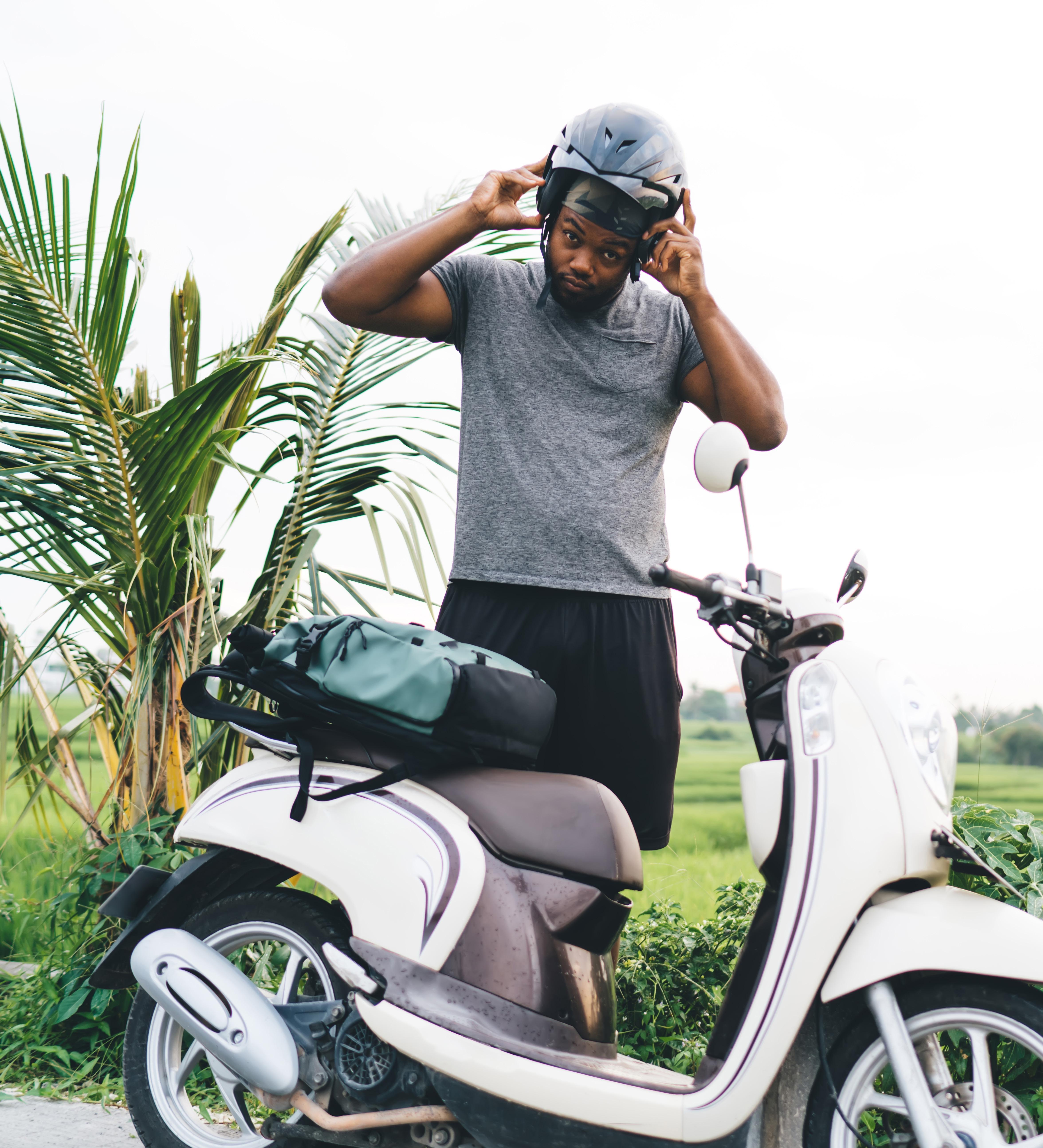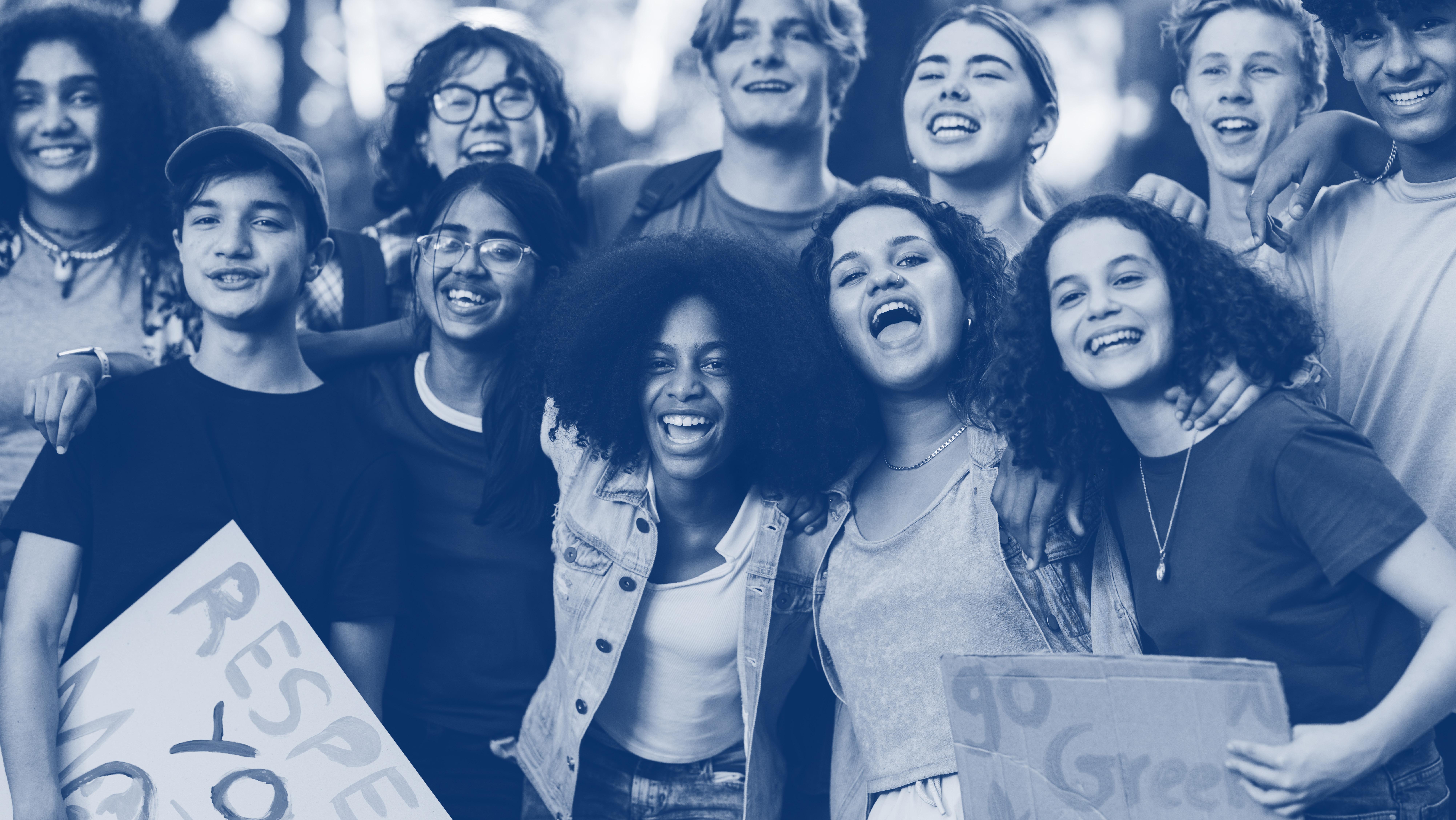YOUTH AND MOBILITY

2
METHODOLOGY KEY FINDINGS RESULTS HIGHLIGHTS 2 3 4 5
TABLE OF CONTENT INTRODUCTION
METHODOLOGY
WHO?
Sample of a total of 9000 interviews of 16-25 y.o. (Gen Z), nationally representative of the population of each country.
1000 interviews per country.
Results were weighted on gender to be totally representative.
WHEN?
17 April - 19 May 2023
HOW?
Survey using the CAWI methodology
10 min online questionnaire via Kantar panel and partners with different sections on:
• Socio-demographics
• Youth’s concerns and sustainable engagement
• Youth and mobility
• FIA Clubs
3
INDIA KENYA MEXICO ARGENTINA
GETTING AN INTERNATIONAL VIEW ON GEN Z
WHERE? GERMANY USA AUSTRALIA
SPAIN CHINA
FINDINGS
UNDERSTANDING GEN Z BEHAVIOURS AND EXPECTATIONS

• Mobility is seen as essential to accessing edication, work and basic services.
• For Gen Z, safety and sustainability are top priorities when it comes to mobility.
• To be able to move, the majority_of Gen-Z has a driving a licence and having a car remains a strong aspiration for them, also in Low- and Middle-Income Countries.
• Developing access to public transport is essential for them to guarantee everyday mobility.
• Gen z have strong and varied expectations towards mobility. They want to participate and are looking for a platform to be heard and are willing to get involved in shaping the future of mobility.
4 KEY
RESULTS’ HIGHLIGHTS
EXPECTATIONS IN TERMS OF MOBILITY
Gen Z have varied expectations concerning mobility. Safety and sustainability are among their top priorities.
Improve safety
More sustainable
Reduce congestion
Improve comfort
More affordable
More accessible
Adapt for people with reduced mobility
Improve frequency
Increase choice between different means of transport
Improve speed
Ease connections / changes between means of transport
Develop more parking lots for cars
Develop digital plateforms / apps (book all your means of transport at once)
Develop more parking lots for bicycles
In %
Base: All respondents (1000 per country)
B10 Which improvements would you like in priority, to help you move in the environment where you live?
5
38 28 28 27 26 25 25 24 23 23 19 19 19 15 23 23 23 23 26 23 27 23 40 30 31 31 33 24 29 31 42 30 31 52 39 42 54 35 34 48 27 33 24 25 32 35 29 35 29 29 28 GER ALL COUNTRIES US AUS IND KEN MEX ARG SPA CHI
THE CAR: AN ASPIRATION
DRIVING LICENCES
6 out of 10 Gen Z have a driving licence.
Yes, for a car
Yes, for a motorbike
Yes, for a motor scooter or a moped
No, but I am currently in driving school or intend to get one in the year
No, but I intend to get one in the next 5 years
No, and I do not intend to get one
Base:
Do
6
ST at least one ST a car exclusively ST motorized 2 wheelers ST no but I intend to 51 13 5 13 20 7 59 42 17 33 38 26 12 51 51 35 16 41 67 49 18 27 ALL COUNTRIES 16-18 BY AGE GROUP: 18-21 22-25 In %
All
respondents (1000 per country)
you hold
driver’s license?
a
THE CAR: AN ASPIRATION
SENTIMENTS ABOUT CAR OWNERSHIP
Gen Z view car ownership as aspirational.
While cars are an absolute necessity in some countries such as the US and Australia, in other regions, young people have a more emotional relationship to car ownership - viewing it as a key life stage and an extension of their home. Interestingly, Chinese respondents strongly rely on the car but also expect to see alternatives.
In %
Base:
B11
7
Owning a car is an important stage of life to reach 56 Owning a car is a luxury 50 The car is an extension of my home, a bubble of confort 54 I would rather favor more sustainable alternatives means of transport (...) than driving a car 44 Owning a car is an absolute necessity, I couldn’t do without it 42 I would rather favor motorized 2 wheelers (...) than driving a car 31 I would rather rent a car or use car sharing than driving a car 28 GER ALL COUNTRIES Strongly agree Totally agree US AUS IND KEN MEX ARG SPA CHI 45 47 49 40 42 24 25 66 60 60 41 64 25 28 55 52 49 35 50 19 22 49 52 48 56 37 55 46 65 66 62 44 32 23 19 50 49 44 46 30 31 25 58 54 51 44 29 34 20 54 46 42 38 38 24 23 58 60 42 56 55 40 40 7 8 14 12 16 14 17
All respondents (1000 per country)
When thinking more specifically about the car, whether you drive or not today, would say that…
IMPORTANCE OF PUBLIC TRANSPORT FOR EVERYDAY MOBILITY
Access to public transport is seen as key for the future, being equally or even more important than access to car or motorised two-wheeler ownership.
US respondents are the exception, given their strong dependence to the car. Argentina and China respondents also show a stronger interest in autonomous vehicles.
India and Mexico respondents have high expectations overall with regards to better access to all means of transport in the future.
8
EXPECTATIONS AROUND THE FUTURE MEANS OF TRANSPORT
Develop access to public means of transport to reduce dependency to car or motorized 2 wheelers 57 Develop shared means of transport (e.g. bicycle, e-scooter, motorbike, motor scootermoped, car sharing...) 48 Help to access car ownership 51 Help to access electric car ownership 46 Develop autonomous vehicles 43 Help to access electric 2 wheelers ownership (e.g. scooter, motorbike, motor scooter, moped...) 43 I would rather rent a car or use car sharing than driving a car 41 GER ALL COUNTRIES US AUS IND KEN MEX ARG SPA CHI 24 49 13 10 10 11 8 21 24 16 16 13 12 13 17 16 10 13 10 9 11 29 18 25 23 18 24 22 29 14 18 17 14 14 12 32 24 26 23 22 21 18 24 22 18 17 18 15 13 26 22 15 20 15 16 13 22 21 20 19 18 16 15 14 15 15 18 18 20 25 In % Base: All respondents (1000 per country) B17 Here are different statements about means of transport in the future. For each of them, how much do you think it is important to develop them, to better move in the environment where you live? Extremely important
Extremely or very important
ACCESS TO BASIC SERVICES
Means of transport are perceived as essential to accessing basic services such as work and education.
People who live in larger countries — like India, Kenya or China — also value cars as a way to meet or connect with others.
9
IMPORTANCE OF TRANSPORT BY PURPOSE
Access to work Access to education Access to services (e.g. doctor, shopping ...) Connect with people Access to leisure activities Go on weekends or holidays ST work or education ST leisure GER ALL COUNTRIES Essential Important or essential US AUS IND KEN MEX ARG SPA CHI 72 73 71 69 72 68 86 85 86 80 86 73 72 71 91 84 84 81 83 78 74 72 91 86 83 84 81 81 71 74 92 87 93 96 93 86 78 73 98 86 92 92 93 77 75 70 97 86 91 90 88 72 66 62 95 80 80 81 79 75 76 71 90 87 87 85 87 83 87 86 95 95 85 64 85 62 85 59 77 40 75 33 72 32 93 75 86 46 In %
All respondents (1000 per country)
How important access to means of transport is for you for the following purposes?
Base:
B5
A WILL TO GET INVOLVED
INVOLVEMENT IN THE DEVELOPMENT OF MEANS OF TRANSPORT
Gen Z want to take an active part in shaping mobility.
Young people in Kenya, Mexico and China say that they are already actively involved.
I am already actively involved
Yes, I would like to be actively involved
Yes, I would like to be informed, even if I am not actively involved
I am not specifically interested in this topic
10
ST Yes actively Yes,
No,
GER ALL COUNTRIES US AUS IND KEN MEX ARG SPA CHI 45 28 35 29 62 67 52 29 35 71 13 7 10 10 27 16 9 6 10 25 32 21 26 20 35 50 42 23 24 45 35 35 38 37 26 30 41 41 45 24 19 36 27 33 12 3 8 30 20 6 In % Base: All respondents (1000 per country) B15 Would you like to be involved in the development, changes, improvements of means of transport in the environment where you live?
A WILL TO GET INVOLVED
LEVEL OF INVOLVEMENT IN SAFE AND SUSTAINABLE MOBILITY
They express a high interest in participating in safe and sustainable mobility, with the strongest levels of interest in India, Kenya, Mexico and China.
Base: All respondents (1000 per country)
B16 Would you be interested in participating in the development of safer and more sustainable means of transport in the environment where you live?
11
ST Yes Yes, very Yes, fairly No, not very No, not at all GER ALL COUNTRIES US AUS IND KEN MEX ARG SPA CHI 78 33 17 26 15 51 67 37 22 21 37 45 37 48 52 40 31 50 40 51 57 17 36 21 24 7 2 12 25 20 4 5 10 6 9 2 1 12 7 2 54 73 67 91 98 86 63 72 94
In %

FOR THE FULL RESULTS, CONTACT: MOBILITY@FIA.COM SUPPORTED BY THE




